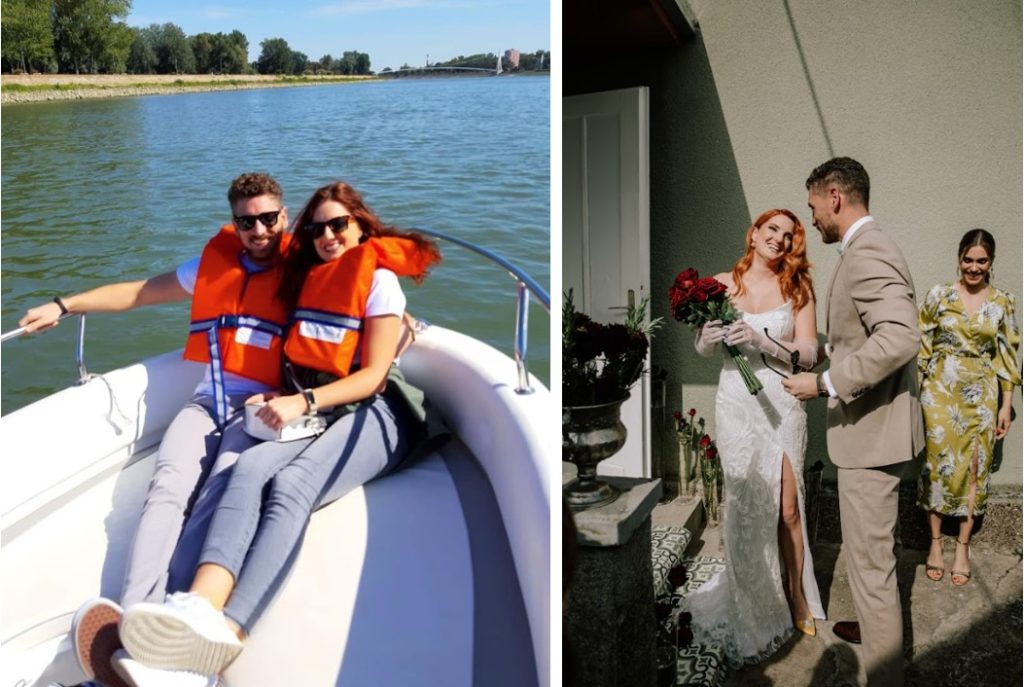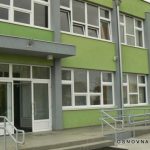April 3, 2024 – Osijek and Slavonia are empty, hopeless and desolate places. At least that is what the media would have you believe. And it is true that the region was devastated after the war, largely ignored by Zagreb and suffered painful emigration of its youth, especially after EU entry in 2013.
And yet…
Things are changing, slowly. There are more and more good news stories coming from the east, most of which do not make it into the media. Our recent video from our new series, Croatia When the Glass is Half Full, 10 Ways Osijek Improved in 2023 caused plenty of debate…
… as well as numerous comments from Slavonians who emigrated, but then chose to return… and are loving it. Let’s meet them.
First up is Helena Neff.
Originally from Baranja, she moved to Zagreb at the age of 18, travelled through 30 countries and never thought of moving to Osijek. Twelve years later, she is a project coordinator and public procurement specialist at Osijek Cultural Center. Working on international projects and getting to know how other cities in Europe ‘breathe’, it has become evident that the decision to move back to Osijek was, in fact, a great one.

1. Tell us firstly about your early life in Osijek before you left.
I’ve actually never lived in Osijek, but nearby, in Darda, Baranja. Since I was born in 1993 in the middle of the war, our family home was in an occupied area and we didn’t move back until 1998. Even though I’ve never lived in Osijek but 15 km away, I visited often, sometimes even a few times a week. Roller skating on Promenada, visiting the Osijek Zoo and shopping in the city centre is what I remember from my earlier childhood. When I started highschool in Osijek, the whole world was in the middle of an economic and financial crisis. During the 4 years of highschool in Osijek, I made some pretty good memories, regardless of the socioeconomic circumstances. During that time, many people left Osijek and that’s when the narrative of it being the “ghost city” started. High unemployment rates, closed businesses and empty streets were common during that period, and these circumstances influenced my decision to search for a better life somewhere else.
2. How did you feel about leaving your native city and why did you make the choice?
Not going to lie, I was very excited to leave. Being 18, I thought that moving to the capital would open the door of the world for me and I was ready for it. I made that choice because I thought that the University of Zagreb can offer a lot more opportunities for me, even though it would be a huge financial burden to my family. Being so persistent in leaving, I promised to work in between my classes and exams to cover at least half of the expense of living in the capital. Since I knew I wanted to study political science and international relations, the decision was not at all difficult.

3. How was that experience?
Being young in a bigger city is always exciting. I had so many friends, colleagues, I worked and I travelled, things were looking up. If you asked me at that time, there was no way of moving back to Osijek or Baranja. I loved my life in the capital, even though everything began to feel more and more unaffordable for a young person with no stable income. But, I felt confident that I can climb my way up because there were so many opportunities that I thought were just waiting for me to grab them.
4. When and why did you decide to return?
Love. During the last months of doing my master thesis, I met a guy from a village near Osijek. We both lived in Zagreb for a while, but then he got a better job in Osijek. The irony, right?
After getting my degree, I couldn’t immediately find a job that paid well enough to afford renting my own place and living alone in Zagreb. At that time, rent was more than double the price in Zagreb than in Osijek. So, without too much thought, we found a cheap place in Osijek and moved as I hoped that I would find a job in Osijek as well.

5. What were your preconceptions about Osijek before your return, and what did you find?
Between 2010 and 2020, the media was full of news and articles about Slavonia and Baranja being empty, poor and unattractive to young people. And I believed them, so coming back was something I saw as a failure.
I have known Osijek as a beautiful city since my childhood, but I had many negative preconceptions of Osijek. Not about its people or natural beauty, but I was afraid I wouldn’t be able to find a decent job, build a career, that there’s a lot of corruption, nepotism and a huge gap between the upper and middle class society. Little did I know that the tables might turn.
6. How has the experience been since returning?
Upon moving back, one preconception actually came true. Since I had no real experience other than working student jobs, and had no connections or friends that could help me, I struggled to get a job. Even though I’ve sent hundreds of applications and open letters to companies, I was unemployed for some time and I really started to question my decision to move to Osijek. Other than that, I noticed that Osijek is different from what I remember it by, it is more lively, it has many things to offer and everyone who visited us was amazed with what they saw in Osijek that was so negatively depicted in the media. In early 2020, a few days before COVID 19 hit Croatia, I got a job and since then, there was nothing negative left for me to say about Osijek and its surroundings.
In the 4 and a half years since I moved back to Osijek, it has changed immensely for the better. My husband and I now have great jobs and compared to Zagreb, a better quality of life. Not just because things are much more affordable here and we could buy an apartment instead of renting, but also because it’s a city made to measure. One can find anything here, from beautiful nature nearby, long walks on the Promenada, river beaches, great cafes and restaurants, friendly people, amazing cuisine and wines, many cultural events to choose from, good schools and university, good healthcare, not too much traffic jam or big crowds (only during sale in Portanova) and overall, a great city vibe.

7. What did your friends think about you returning?
When I announced to my friends from Zagreb that I’ll be moving to Osijek, one of them said: “I was convinced that even Zagreb is too small for you, Helena. Why would you move to that ****hole?”
We’re not friends anymore.
8. Good news about Slavonia rarely makes the national media – why is that, do you think?
Because I can’t even count how many big projects are currently in process. Opening the new football stadium, renovations of the old fortress Tvrđa, renovations of tram lines, new kindergartens, schools, hospitals, hotels, library, foreign companies and investments.. Unemployment rate has never been lower.
In my neighbourhood Retfala, every other house that used to be old and ugly is now a new urban villa or a modern building. Also this year, Osijek Cultural Center is opening the first ever concert hall in Osijek, which brings a lot to musicians and artists from the whole region. There are many more plans for renovations, projects and investments that are yet to come.
After the media presenting Osijek as a ghost city for so long, it’s time to portray Osijek in its real colors.

9. What are the major improvements you have seen in Osijek since you left?
Infrastructure and culture. There are so many infrastructural projects going on, but because of the bad starting point, there’s still so much left to do. Since I work in culture, I can see firsthand how it evolved from 2020 till now. Even though Osijek Cultural Center is not the only cultural institution in the city, we have between 200 and 250 cultural events a year. All cultural events are very well visited, which is a sign of a better quality of life in Osijek.
Of course, there is still much room for improvement, but generally, you can feel that people live better than they did 10 years ago.
10. What improvements would you like to see?
I would love to see Osijek with better connectivity. Osijek Airport and railways do not meet the needs of many citizens who travel a lot for work or leisure. There is definitely a lot to be done in that field. While people with cars generally have no problems getting anywhere, there are not many other options.

11. The best and worst things about living in Osijek today?
The best – I live 100m away from the beach.
The worst – It’s not an Adriatic sea beach.
12. Your message to others who have emigrated about Osijek as a place to live today.
I’m sure people have asked you why, but I’m also sure you already know the answer.
Did you emigrate from Osijek/Slavonia and have returned and would like to be included in this series? Or are you a foreigner who has moved there? Please contact paul@paul-bradbury.com Subject Slavonia Return and we will send you the email questions (we will include a link to your website if requested).












